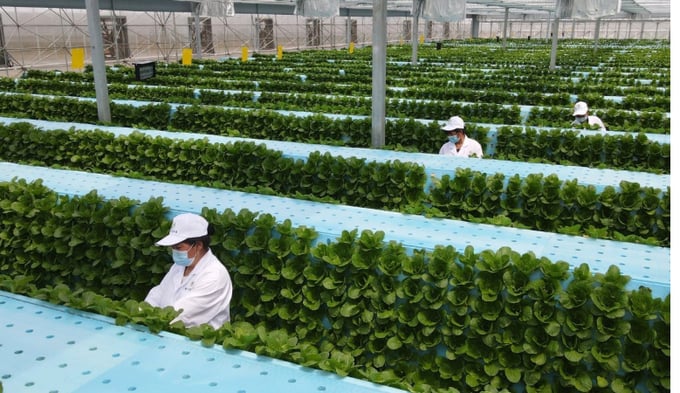May 19, 2025 | 01:52 GMT +7
May 19, 2025 | 01:52 GMT +7
Hotline: 0913.378.918
May 19, 2025 | 01:52 GMT +7
Hotline: 0913.378.918

Smarter, more sustainable methods are enabling record-breaking yields while safeguarding soil health for future generations.
As China strides toward its 2025 agricultural modernisation goals, a key element of its traditional farming practices – fertiliser – is being phased out in favour of innovative approaches to food production. Smarter, more sustainable methods are enabling record-breaking yields while safeguarding soil health for future generations, according to a report by the South China Morning Post.
China has reduced fertiliser use for eight consecutive years since 2015, the report said, citing data from the National Bureau of Statistics. Despite this, the country’s agricultural output has steadily increased. In 2024, grain production hit a historic high of 706.5 billion tonnes, up 1.6 per cent from 2023, as per National Bureau of Statistics data.
This growth has been credited to more targeted fertiliser applications that supply only the nutrients crops need, coupled with advancements in seed technology, farmland quality, and mechanisation.
China faces growing challenges, including climate change, geopolitical uncertainties, and the need to sustain nearly 18 per cent of the global population with just 9 per cent of the world’s arable land. The country is pursuing food security while promoting sustainable agricultural practices.
Guided by its 14th Five-Year Plan (2021-25), the government has increased funding for agricultural research and development, South China Morning Post highlighted. In 2023, the Ministry of Agriculture and Rural Affairs allocated 15.9 billion yuan ($2.18 billion) to R&D – a 25.2 per cent rise from the previous year.
Improvements in seed varieties, planting methods, and mechanisation have boosted the yield per hectare of key crops. Between 2021 and 2024, soybean and corn yields rose by 2.54 per cent and 4.87 per cent respectively, while rice saw a 0.63 per cent increase, the report said.
Mechanisation in harvesting also rose, from 71 per cent in 2021 to over 73 per cent in 2023, improving efficiency and bringing down post-harvest losses. By 2035, reduced food waste could save an estimated 53.9 million tonnes of staple grains, the report noted citing CASS projections.
China has expanded its arable land for three years in a row, reaching 124.3 million hectares in 2023, aided by farmland reclamation campaigns. In 2024, the total sown area for grain climbed to 119.3 million hectares, marking a 1.4 per cent increase since 2021.
However, challenges persist. While domestic food production has risen, imported crops surged by 12 per cent in 2023, following an 11 per cent drop in 2022. With potential trade tensions looming, especially with the US – a major supplier of agricultural goods to China – boosting agricultural productivity has become more critical than ever.
business-standard

(VAN) 14 out of 35 domesticated elephants in Dak Lak province have had their living conditions improved, with 11 of them currently participating in the non-riding elephant tourism model.

(VAN) Muong Nhe Nature Reserve hopes that being upgraded to a national park will lay the foundation for forest protection efforts to be carried out in a systematic, modern, and sustainable manner.
/2025/05/16/3923-2-171845_52.jpg)
(VAN) Lower costs, higher yields, and improved soil quality are outstanding benefits that soybeans bring when integrated into the crop rotation system.

(VAN) The 'For a Green National Environment' programme aims to promote a green lifestyle, support businesses in implementing ESG practices, and turn Net Zero commitments into concrete actions.

(VAN) Cold-barn systems efficiently manage environmental and temperature conditions, which aids in the prevention of respiratory diseases in pigs and protects them from the vectors that transmit African swine fevers.

(VAN) To tackle challenges, the project 'Addressing key technical bottlenecks in the grouper supply chain in Vietnam' has been underway since 2024.

(VAN) The project 'Disease-Resilient and Sustainable Cassava Production Systems in the Mekong Region', funded by the Australian Center for International Agricultural Research (ACIAR), is being implemented from 2024 to 2028.